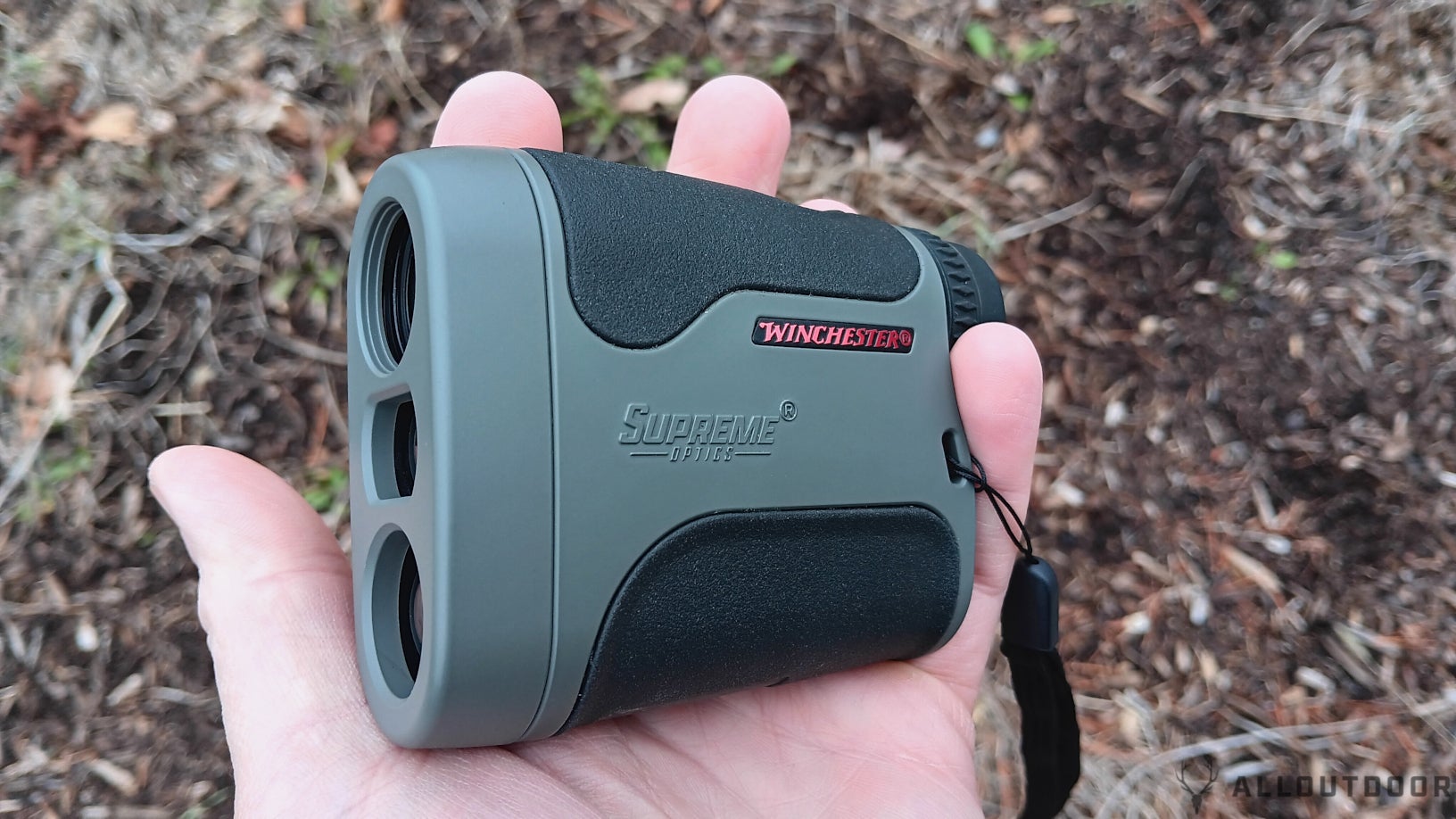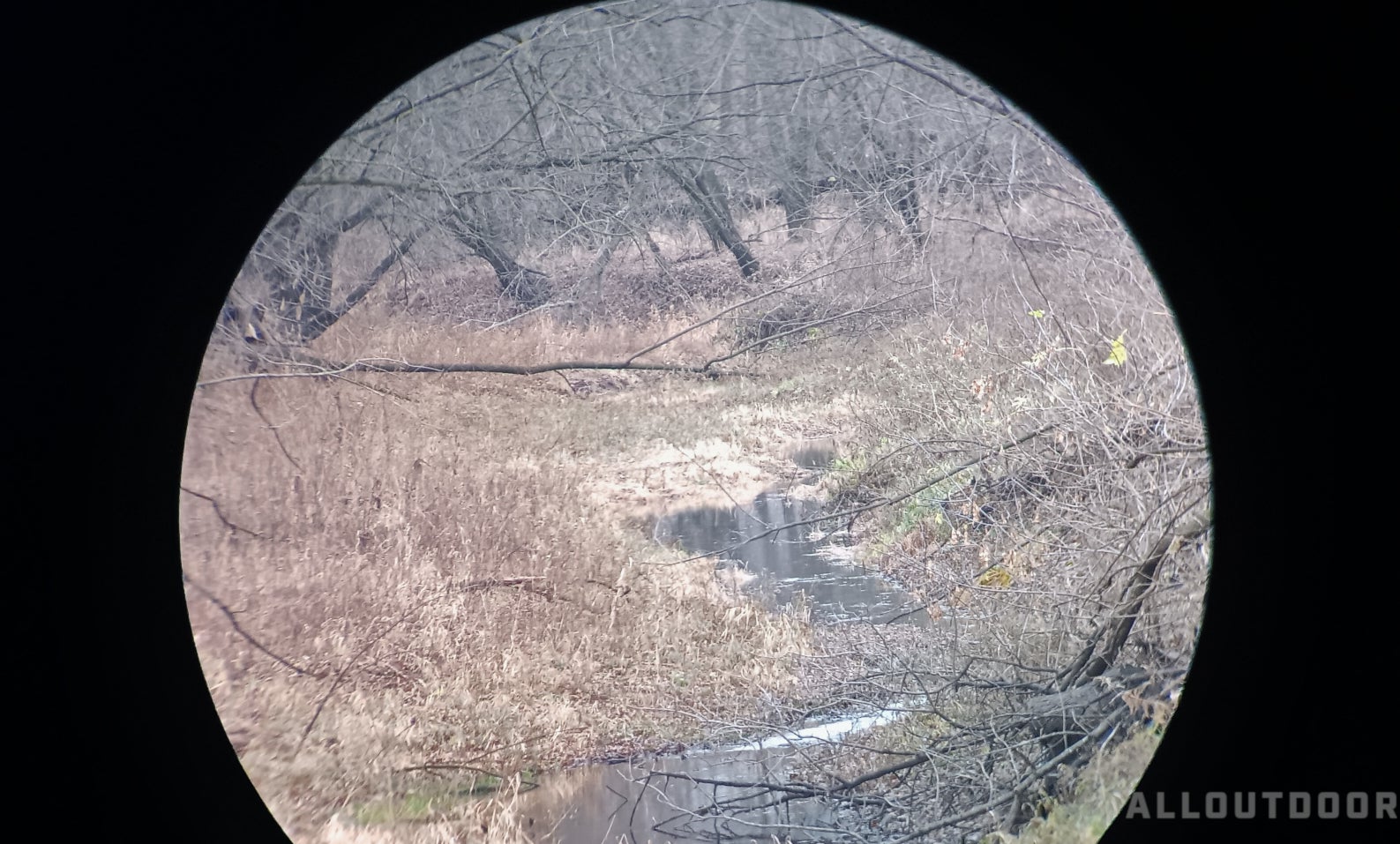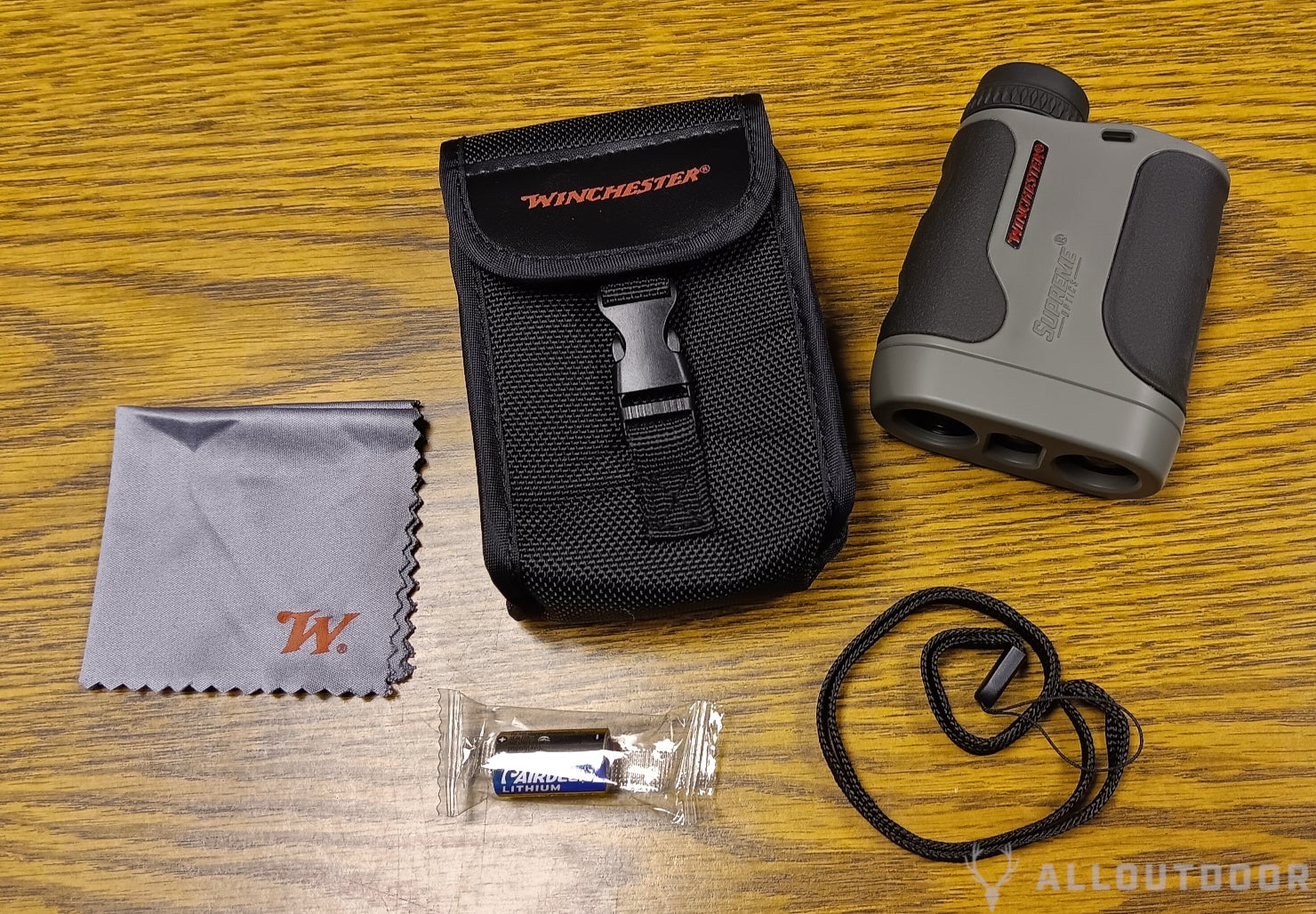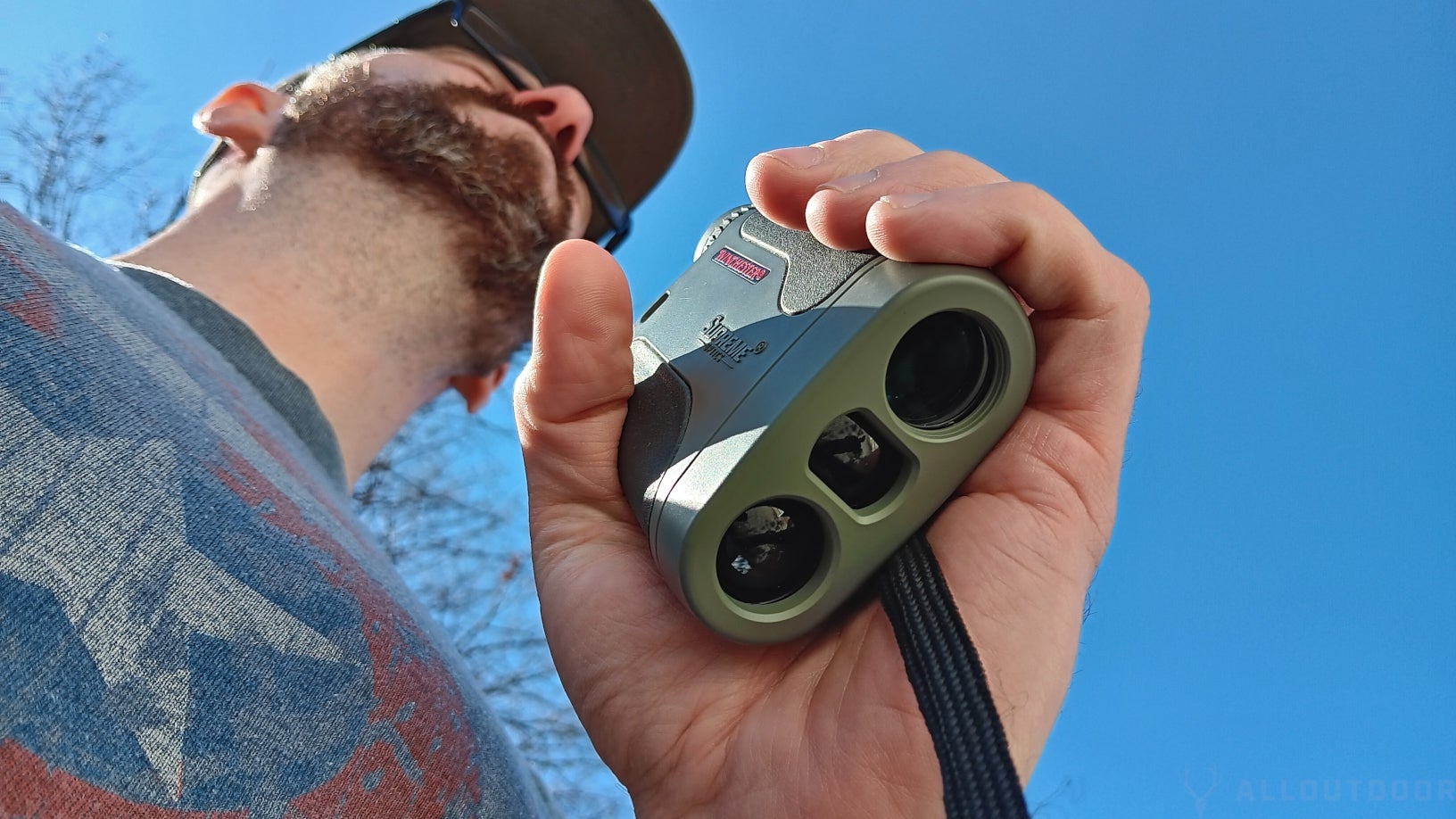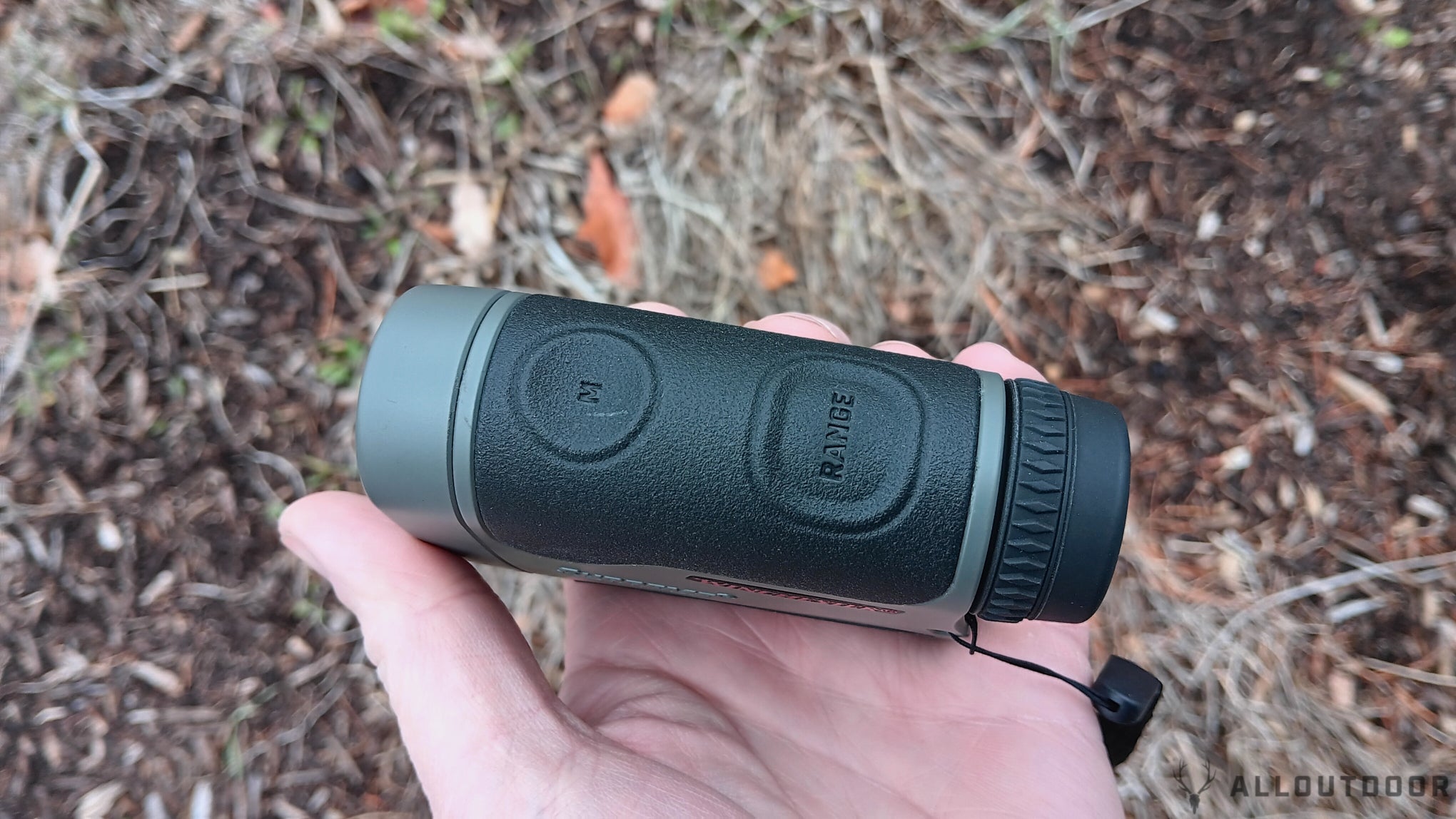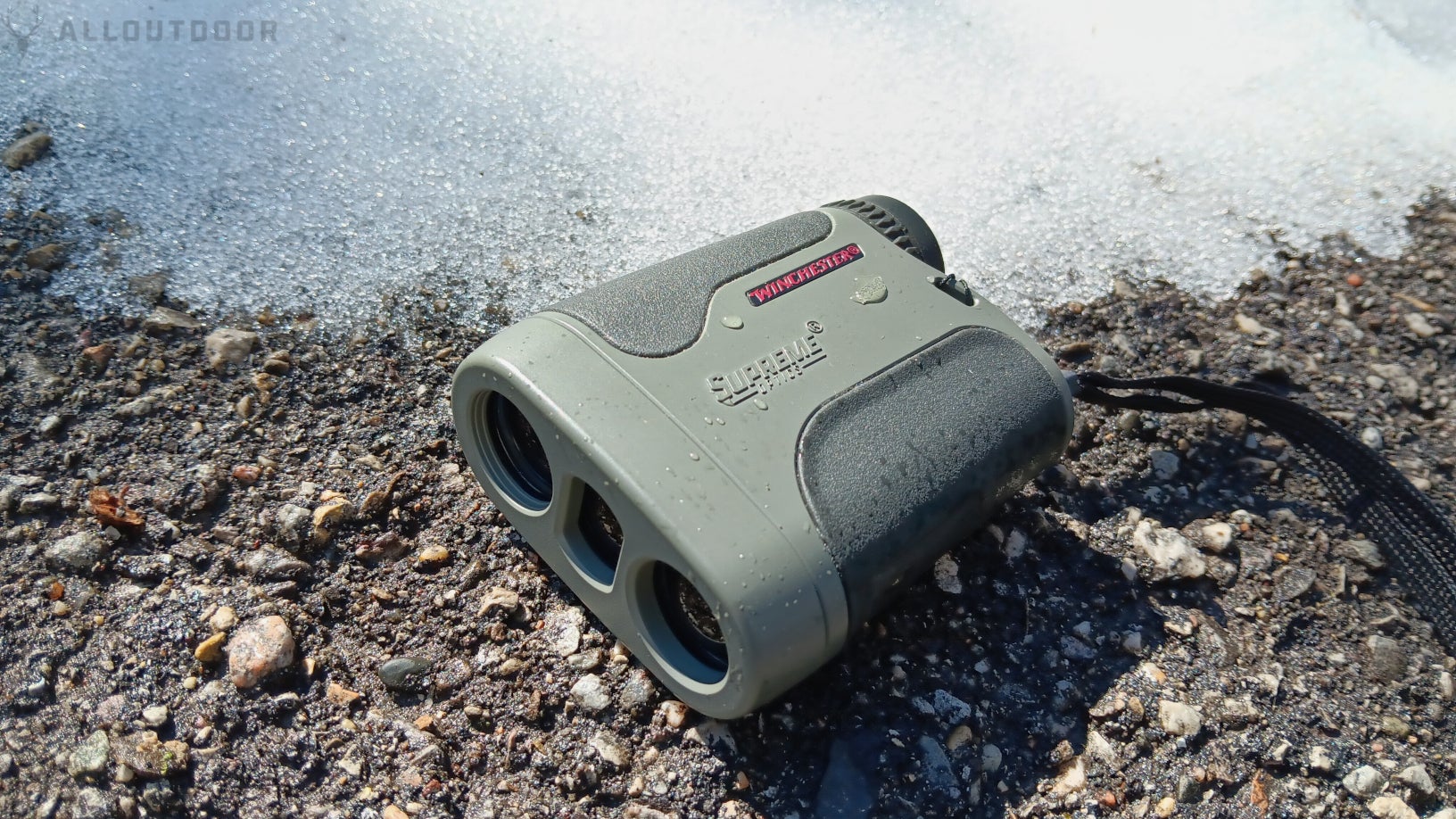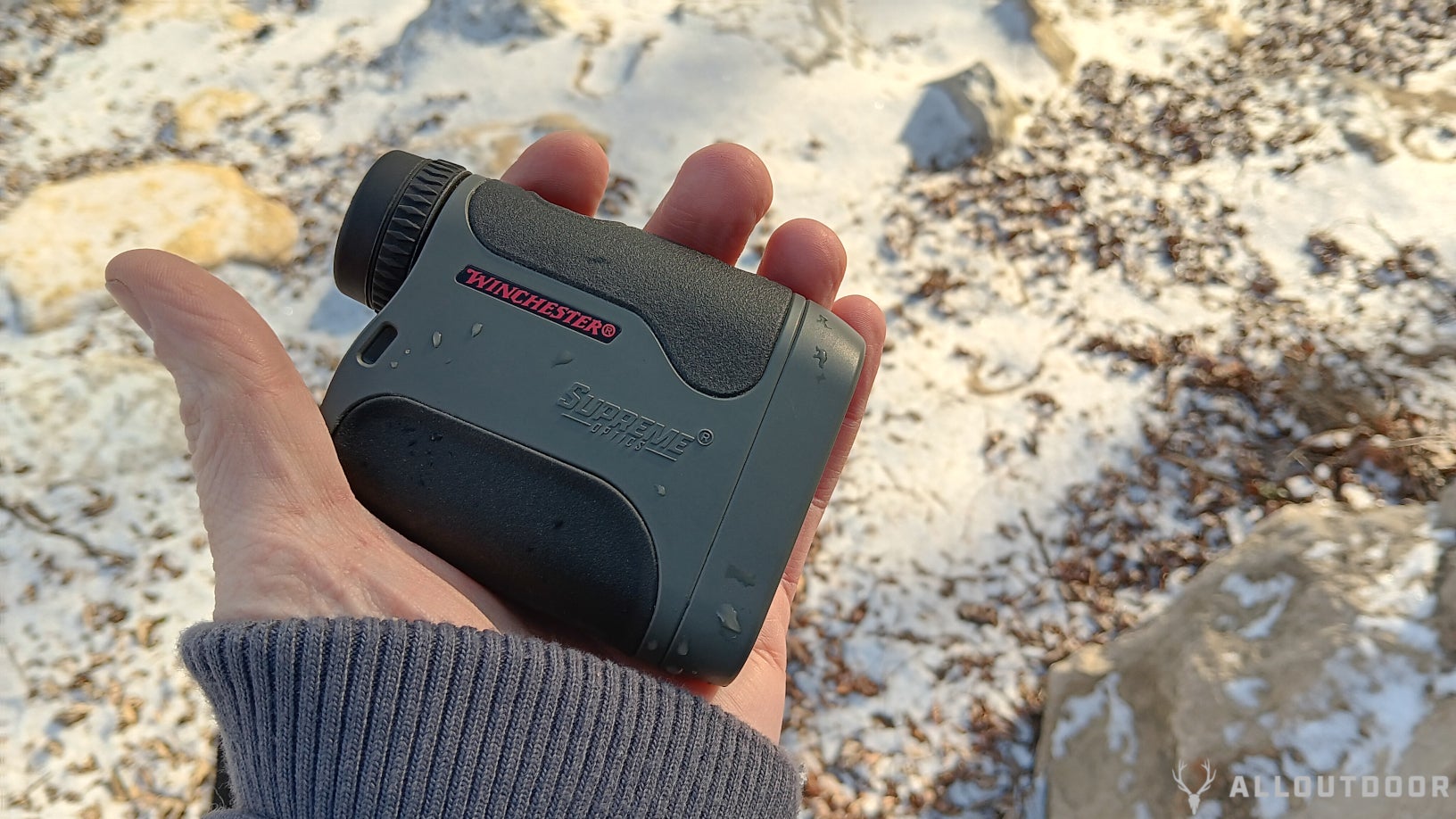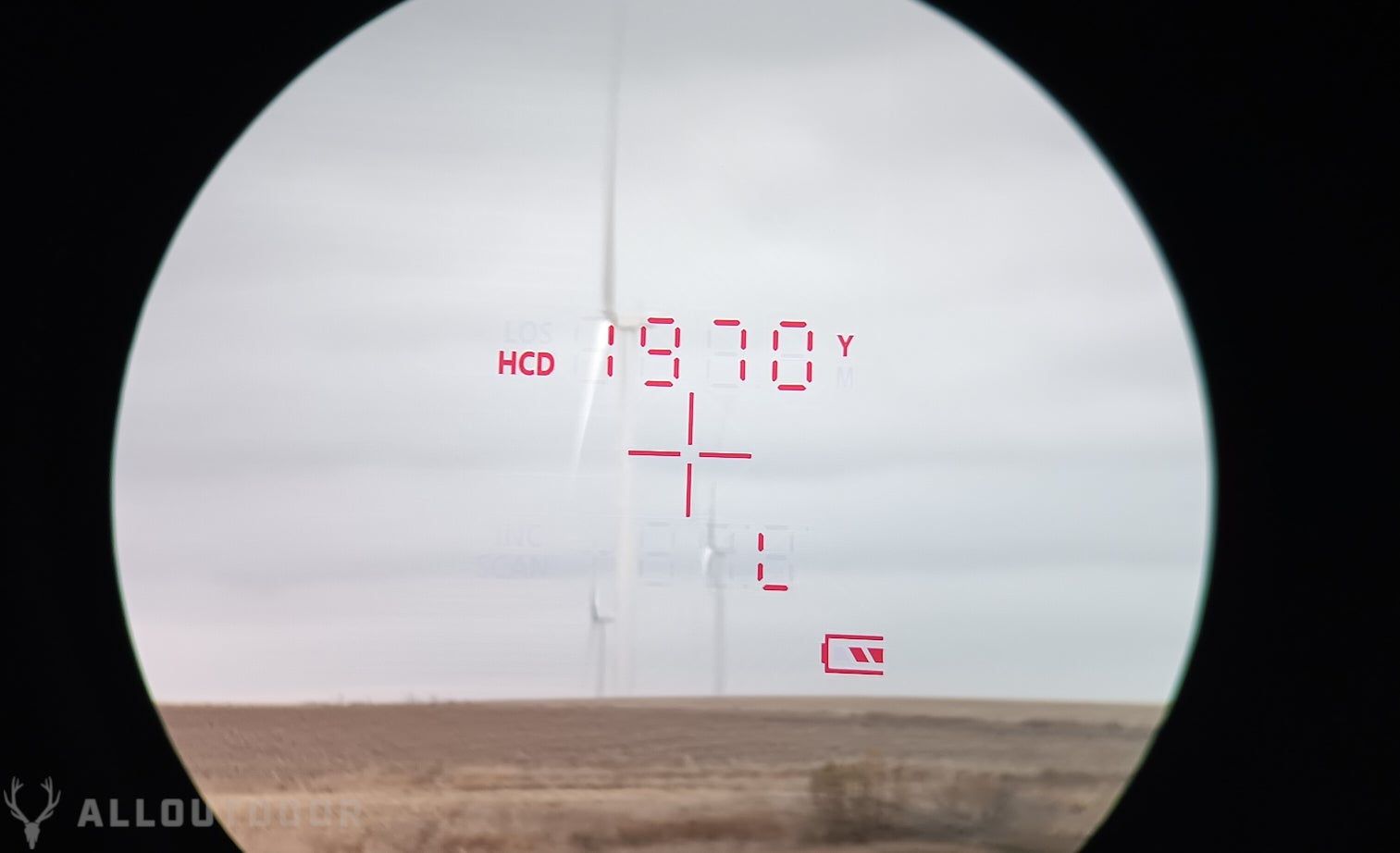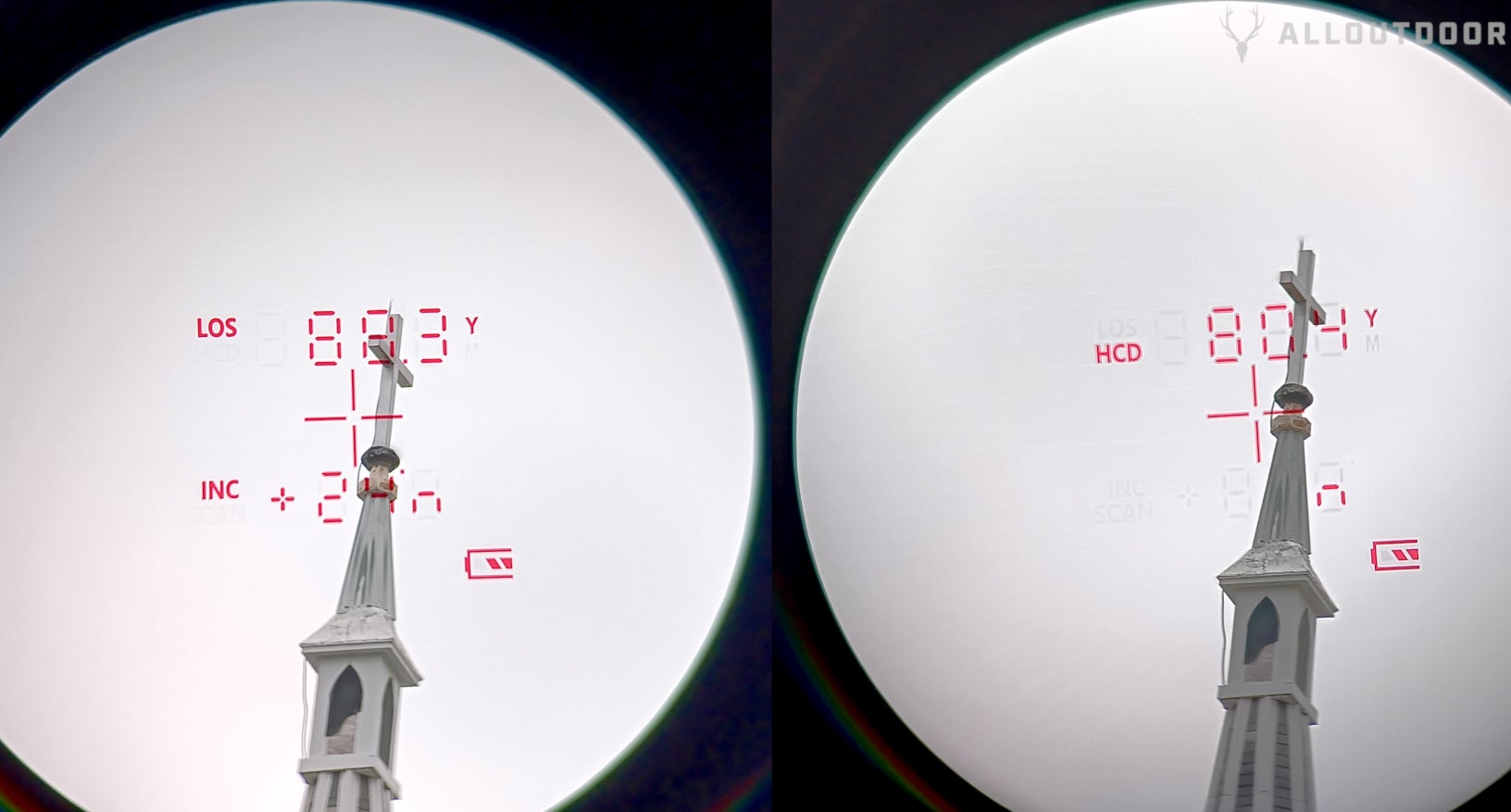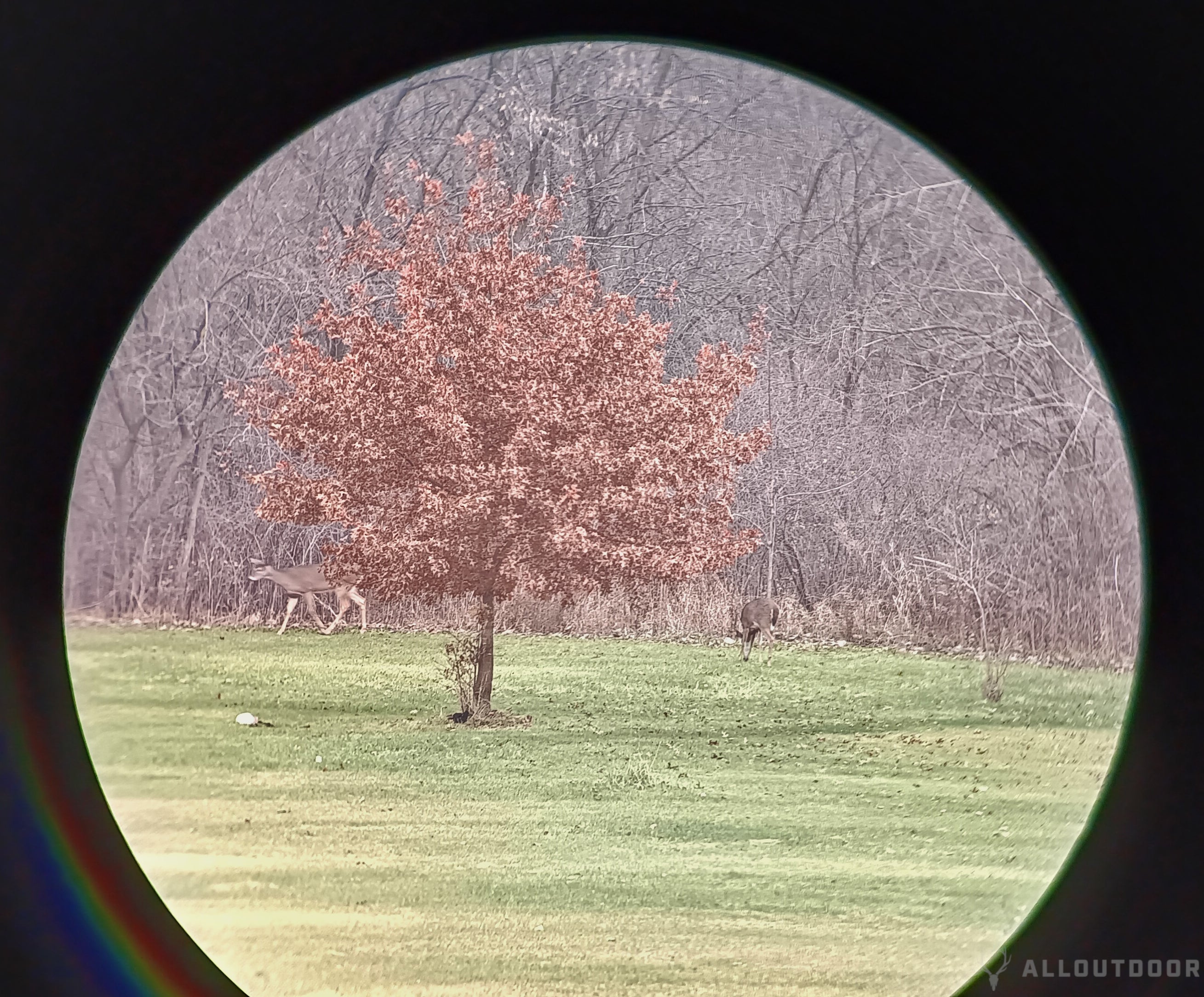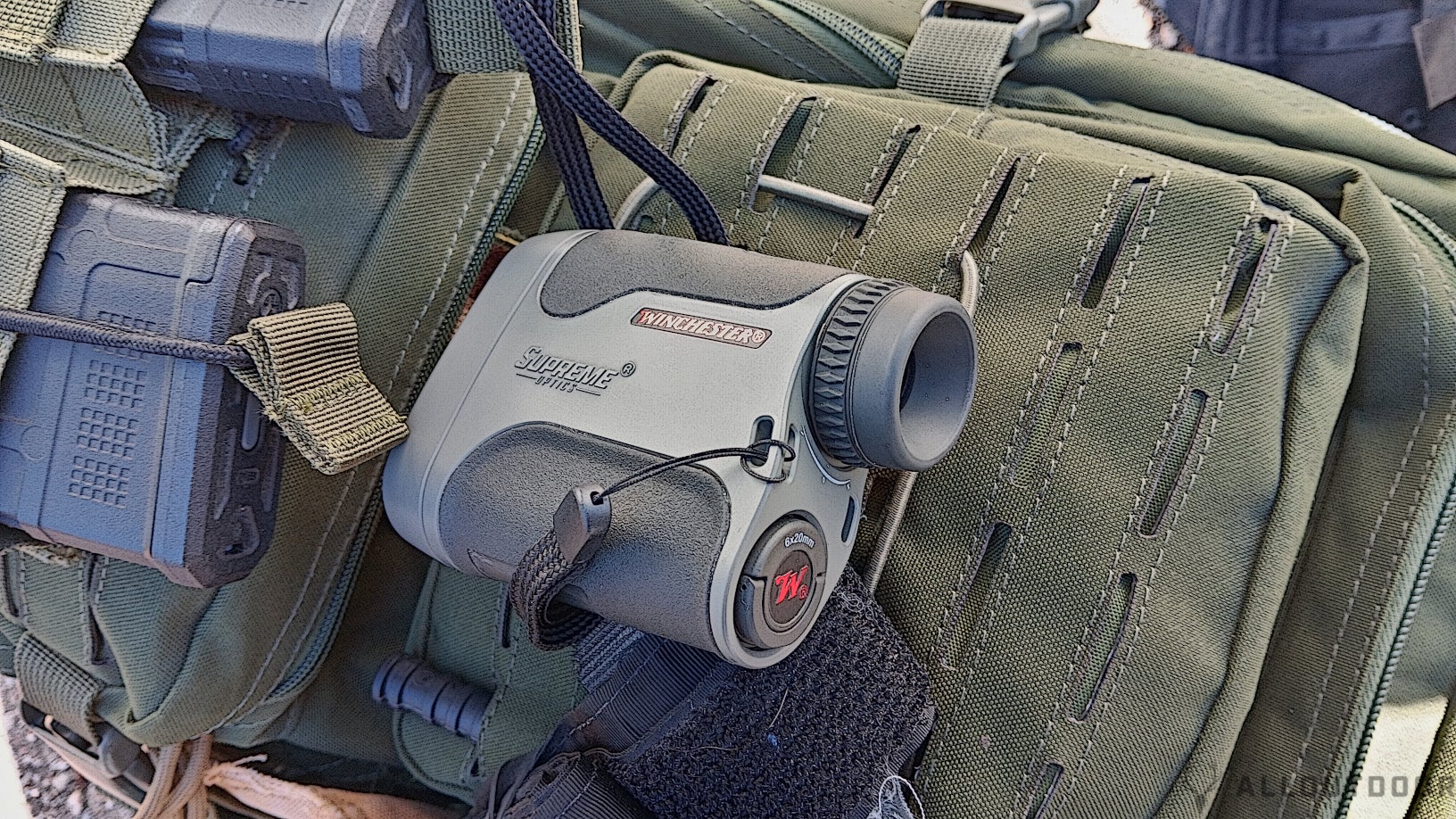AllOutdoor Review – Winchester Supreme Rangefinder 6x20mm
Doug E 03.11.25

Winchester recently launched their own optics line that covers rifle scopes, thermal scopes, spotting scopes, binoculars, and rangefinders. With this new Winchester Supreme Optics launch, they’re offering two different rangefinders; the 7x24mm, and the 6x20mm. Today, as the title suggests, we’ll focus on the Winchester Supreme Rangefinder with the 6x magnification that they were kind enough to let me test out for our readers. Let’s take a reading on it, shall we?
Winchester Coverage on AllOutdoor & TFB
- Winchester Supreme Optics Announces Thermal Sight Line
- Winchester Releases a New Product Line – Supreme Optics
- Winchester Releases a New Product Line – Supreme Optics
- The Rimfire Report: The Winchester Xpert 22 LR Rifle
- The New Winchester Ranger – Lever Action 22LR On a Budget
Winchester Supreme Rangefinder
Housing
The Winchester Supreme Optics Rangefinder in 6x features a lightweight, plastic housing that has two sections of inlaid rubberized grips, top and bottom. The rubberized grips work great for stability and retention, especially when compared to the smooth plastic body.
Glass
It should be noted that the through-optic photos featured here don’t do full justice to the image quality seen by the naked eye. You might notice that in photos where the range is displayed, the camera focused on that rather than the image as a whole. The image quality to the naked eye is very high, with only the slightest color distortion at the most extreme edge. Without looking for it, it’s not noticeable and the optic shows your scenic details from edge to edge.
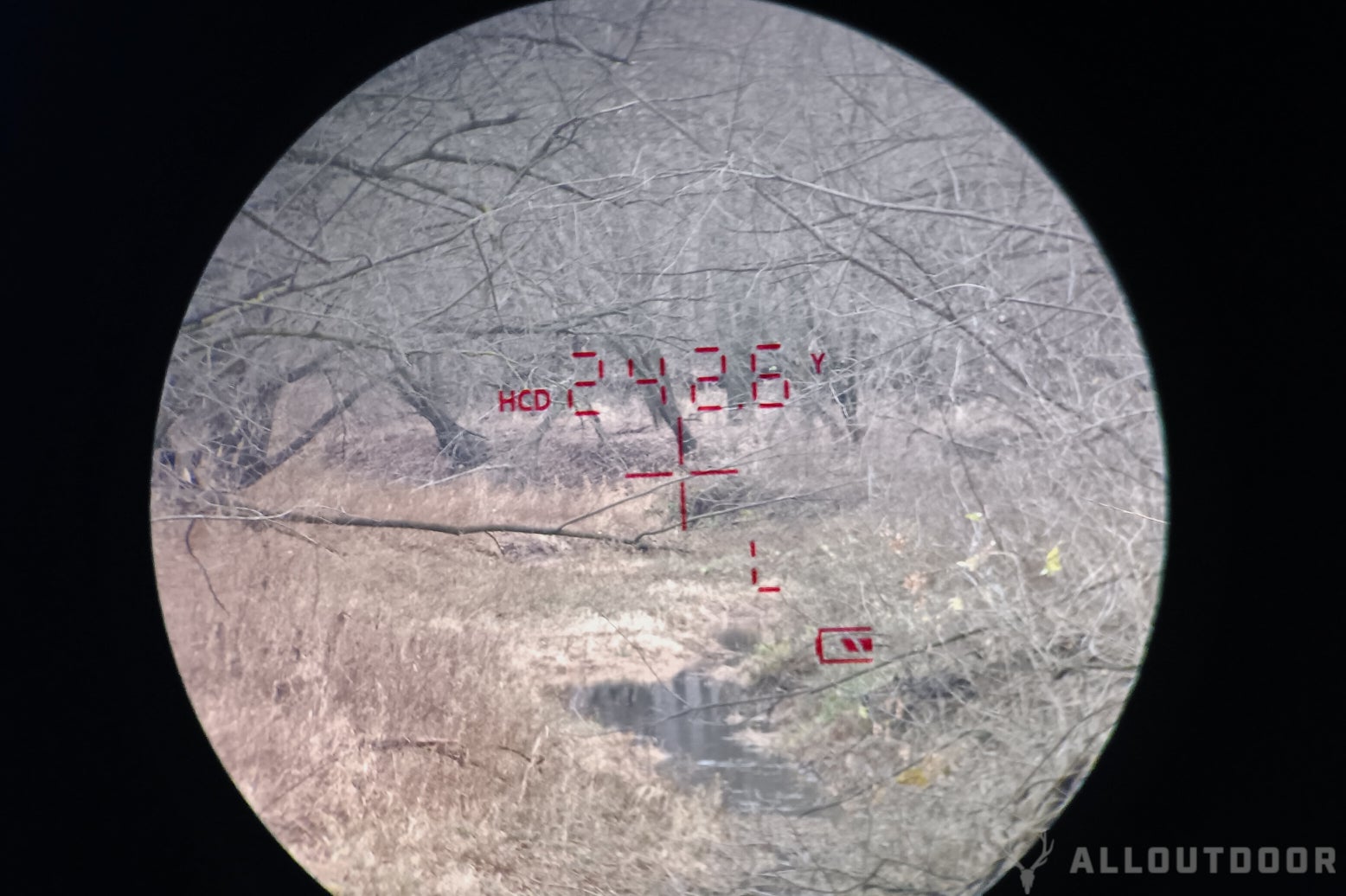
This version of the Winchester Supreme Rangefinder line has a handy 6 times magnification through a 20mm objective lens. The ocular lens has an adjustable diopter with a cushioned rubber eyepiece. One downside with the eyepiece is that for people with eyeglasses like myself, you’ll probably need to remove them to get a full picture through the Winchester Supreme Rangefinder. It’s still functional if you just need a quick reading while wearing glasses, but the image will be diminished.
Specifications & Features
Key Features
- Maximum Range 2,000 yards
- 6x Magnification
- Coated HD Optics
- 100% Waterproof Rubber Armor Housing
- Three Target Modes
- Wrist strap lanyard, padded carrying case, lens cleaning cloth, and one CR2 battery.
| WINCHESTER® SUPREME® LASER RANGEFINDER | 6×20 mm |
| MAGNIFICATION | 6X |
| OBJECTIVE LENS DIAMETER | 20 mm |
| OCULAR LENS DIAMETER | 14 mm |
| MINIMUM RANGE | 5 Y |
| MAX REFLECTIVE RANGE | 2000 Y |
| RANGE (BUILDING) | 1200 Y |
| RANGE (TREE) | 900 Y |
| RANGE (DEER) | 750 Y |
| INCLINOMETER | ± 60° |
| BATTERY TYPE | CR2 |
| DISPLAY | RED LCD |
| TARGETING MODES | Normal, First, Last |
| RANGING MODES | HCD, LOS |
| SIZE | 3.86” x 3.07” x 1.42” |
| WEIGHT | 6.17 oz with battery / 190 g |
| EYE RELIEF | 14 mm |
| ANGULAR FIELD OF VIEW | 6.5° |
| LINEAR FIELD OF VIEW | 114 m @ 1000 m, 114 y @ 1000 y |
| IP RATING | IPX4 |
| MATERIAL | PPS, PC+ABS, Rubber, Optical Glass |
Operation & Menu
One thing I noticed that was absent from the packaging was a user manual. I thought it was strange, but it took me all of 30 seconds to get to the rangefinder’s internal menu and cycle through the options. If you’re looking for a Bluetooth or Applied Ballistics style rangefinder, then this isn’t the model for you, but the basic functionality is just fine with me.
To access the Winchester Supreme Rangefinder menu, click the “Range” button to wake it up. Then press and hold the “M” button for four seconds. The crosshair reticle will disappear and leave you with the HCD (Horizontal Component Display) or LOS(Line of Sight) ranging style. To change the ranging style, press the “Range” button. To jump to the next menu option, press the “M” button. The next menu option is displayed as “tgt” for target, and lets the user select between F (first), L (last), or N (normal) modes that selects what order the laser return is read. Pressing the Range button toggles between the options. Pressing the menu button again toggles to the next option of “Unit” for displaying the reading in Y (yards) or M (meters).
Home on the Range
As a quick distinction between both of Winchester’s new laser rangefinders, the 6x20mm model is built for a maximum range dection of 2000 yards, while the 7x24mm model is designed to range targets at a maximum of 3000 yards.
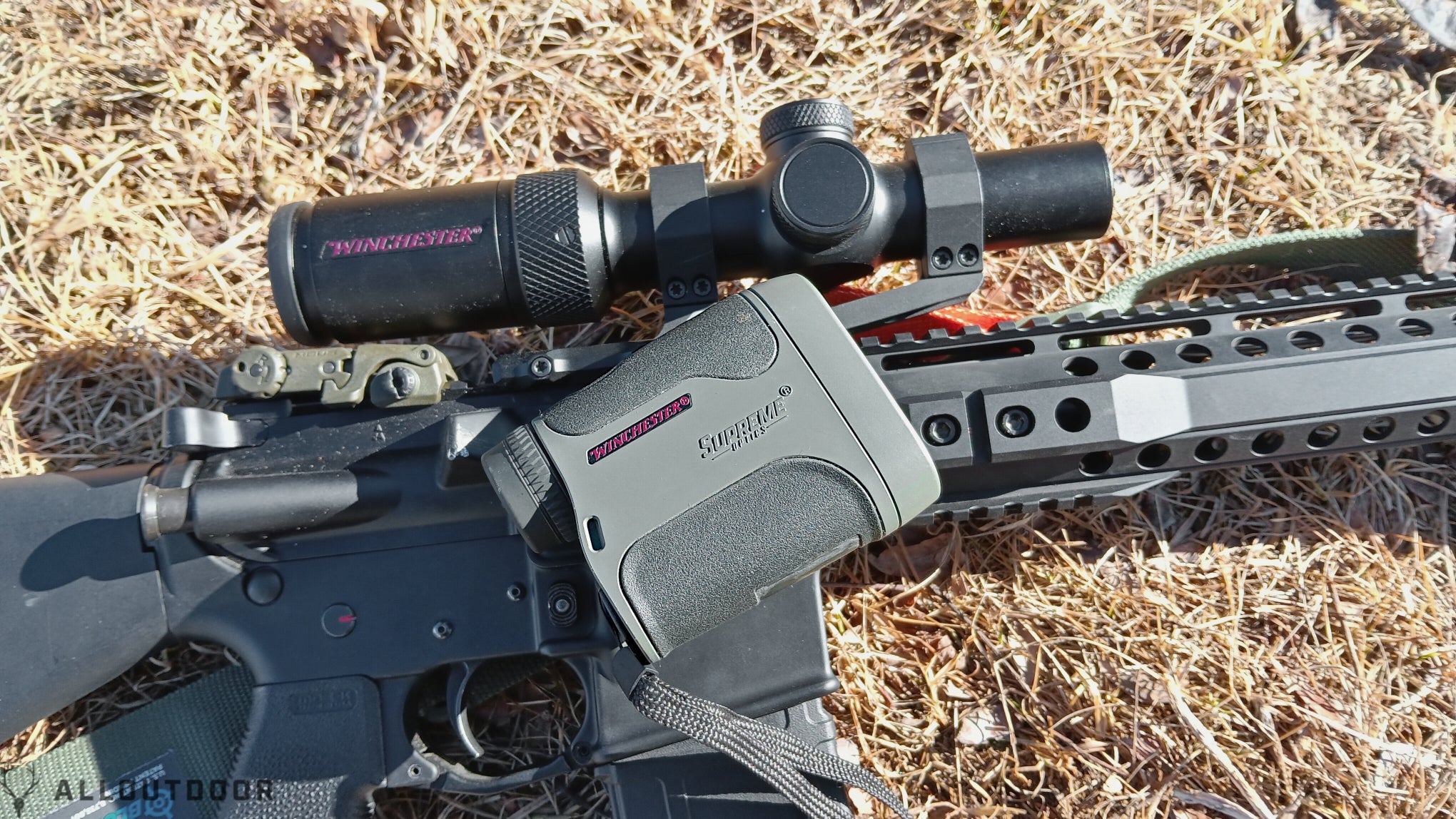
Although the 6x20mm Winchester Supreme Rangefinder isn’t as techy as other models available, it worked great within its feature set. When comparing my experience against the capabilities spec’d above, it met and exceeded the designated goals in two categories, and fell a just a hair short in two others. The areas Winchester’s Rangefinder exceeded the specs for me was with trees and buildings. Winchester states that this rangefinder can lase trees out to 900 yards, but I was able to get a hit on pine trees at 1002 yards. They also state that buildings can be lased at 1200 yards, however, I was able to get a reading at 1224 yards on a barn, and 1334 yards on a large silo.
While I wasn’t able to the fulfill the following categories, my targets, they were just shy of the specifications. For animals, Winchester states you should get readings at 750 yards, but the best the deer would cooperate for me was 703 yards, then they ran for cover before I could move back. I also wasn’t able to fully max out the stated distance of 2000 yards; the most I was able to achieve was 1970 yards. That’s not to say that the Winchester Supreme Rangefinder isn’t capable, but I wasn’t able to stretch it further. For anyone wondering what the shortest range I was able to read, it was 4.9 yards, which can come in handy for training and setting up a course for firearms competition or instruction.
In the photo below, you can see the difference between LOS and HCD modes. The Line of Sight mode on the left displays the exact distance between the rangefinder and your object. This mode also displays the angle in degrees in case you want to do your own calculations for a ballistic cosine. For anyone not familiar with this concept, shooting at angles, up or down, will require different hold-offs in your sights or optics based on the angle and range shown between the rangefinder and your target. The Horizontal Component Display mode on the other hand calculates the angle cosine for you. As you can see below, there’s an 8.1 yard difference between the two modes.
The red LCD reticle and readout display is a nice feature that helps to contrast varied targets and I prefer it to black LCD displays. If the target or the ambient lighting is too dark, you’ll still need to move the display to a lighter colored background to see it though.
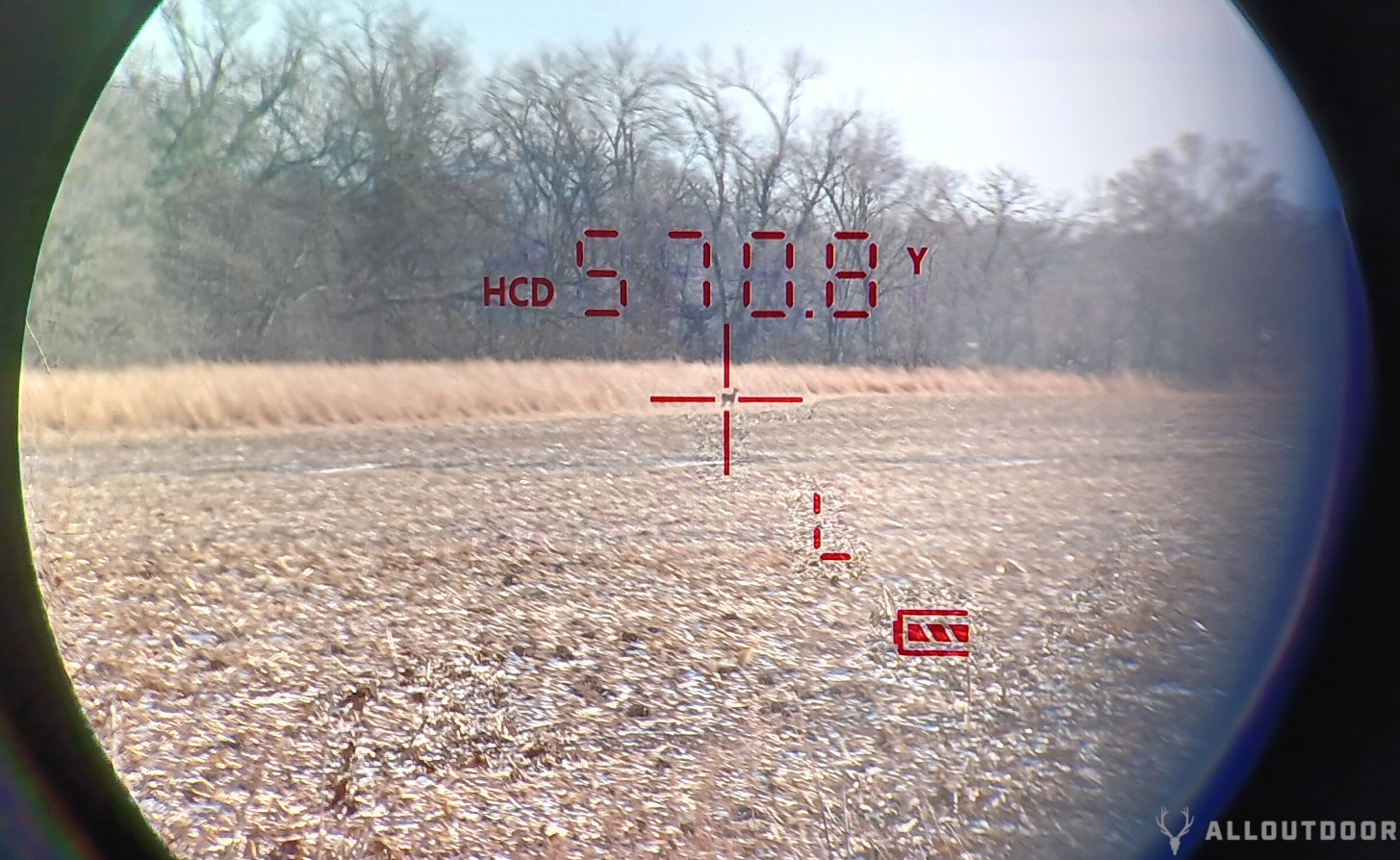
I also tested the waterproofing aspect of the Winchester Supreme Rangefinder. My normal aquatic testing grounds were frozen over, so my sink had to suffice. I completely submerged the 6x20mm Rangefinder for a minute and shook it around as well. It operated perfectly directly after, as well as hours later.
Final Thoughts
For Winchester’s first foray into the optics market, I found the Winchester Supreme Rangefinder in 6x20mm satisfactory and desirable since I don’t have a need to plug in data to, or from other devices. The image quality is great and the operation is simple and quick. You can visit Winchester’s product pages for the 6x20mm, which has a listed price of $241.99, and the 7x24mm which has a price of 337.99, or visit WinchesterOptics.com to view their whole optics lineup.
What do you think about the Winchester Supreme Rangefinder? If you’ve already picked up either model, let us know how your experience has been in the comment section.
